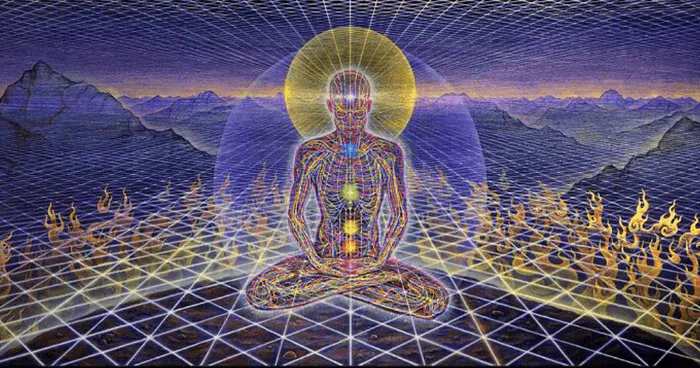In this article I will argue why consciousness can never be understood in an analytical manner.
Background
The proponents of intrinsic consciousness or of the primacy of consciousness (I am one of them), consider that pristine awareness (or primordial consciousness) is the ground of all existence. In other words primordial consciousness is irreducible.
Argument
If primordial consciousness is irreducible and the underlying ground of everything that exists, it is Absolute and can never be understood in terms of relations to other things. You see, as Buckminster Fuller explained, analytical understanding is a process of building relations, of building an ontology. We understand an object by its structural and functional relations to other objects, by listing its constituent features. All these connections build a so-called plane of understanding, that metaphorically stands under the object to be understood. All objects, events and situations we mentally only know in relative terms. This is even physically reflected in the neuronal network in our brains.
The absolute ground of all relative phenomena itself is not relative. If you only make all kinds of objects from clay, you will never be able to understand what clay really is. You will of course be able to learn how clay behaves (functional aspects), but that is not sufficient to know what it structurally is. And if it is irreducible, it has no intrinsic structure, it has no limitations, which means that it must be infinite.
We may be able to describe all kinds of forms and behaviour of these forms, but this will only tell us something about the manifestational aspects of primordial consciousness, never its intrinsic essence. So if primordial consciousness (Consciousness with a capital C) is the source of everything else, trying to mentally understand it is a vain enterprise. Of course it is useful to study the behaviour of consciousness, but we should perhaps refrain from stating "Consciousness is this or that" in terms of relative aspects.
If consciousness is irreducible, it is Absolute and Infinite, all-encompassing and profoundly in-understandable. But it can be experienced. If we write about our human consciousness, of course we can describe how we experience it, in terms of its self-reflexivity, its awareness, its focus, its concentration, its ability to integrate, understand and generate information, but none of these descriptions will ever be enough to capture, to define what it really is.
Define comes from the Latin "finis", meaning border or end, in other words to define is to limit something, wherein the limitations are the descriptors of its relations. Perhaps this is why Wittgenstein said, when referring to consciousness: "Wovon man nicht sprechen kann, darüber muss man schweigen" i.e. what you cannot speak about, you must keep silent about.
Whereas consciousness may not be analytically understandable, perhaps it can be grasped by the mystic experience called "self-realisation".
Conclusion
We have seen how the idea of intrinsic consciousness as ground for all phenomena is incompatible with analytical understanding. Perhaps this is why the so-called "hard-problem" of consciousness in science and artificial intelligence (ai) has never been solved. And if my hypotheses are correct, it can never be solved by science, which is analytical per definition.
Image by Alex Grey found on upliftconnect.com/wp-content/uploads/2015/10/art-changes-consciousness-theologue
